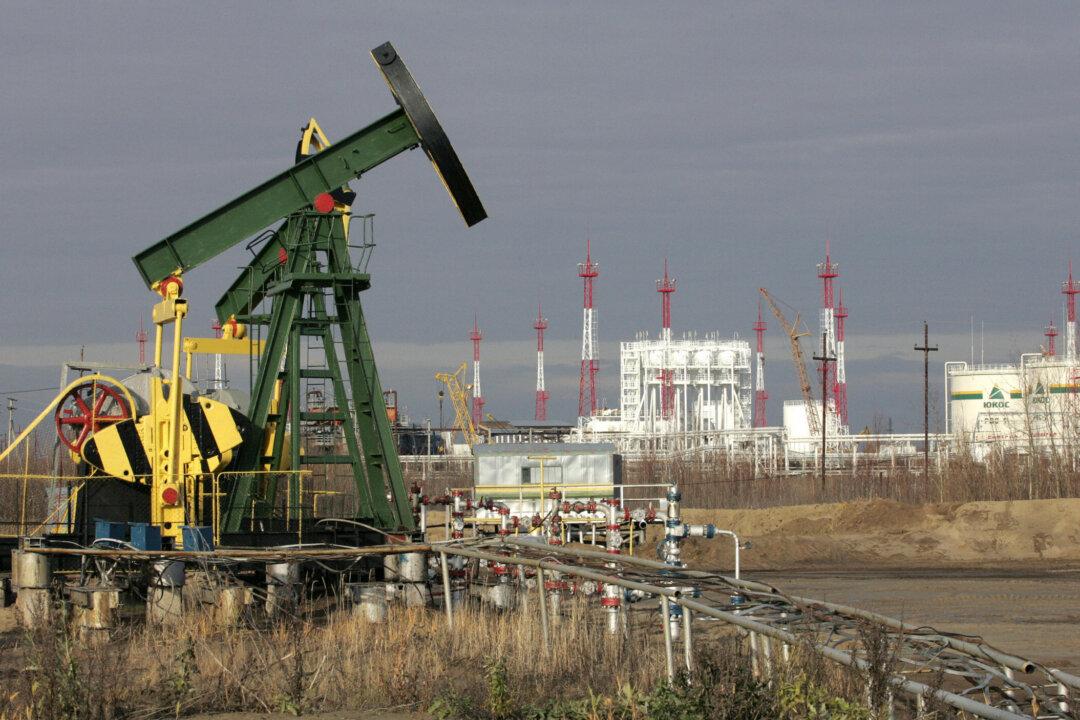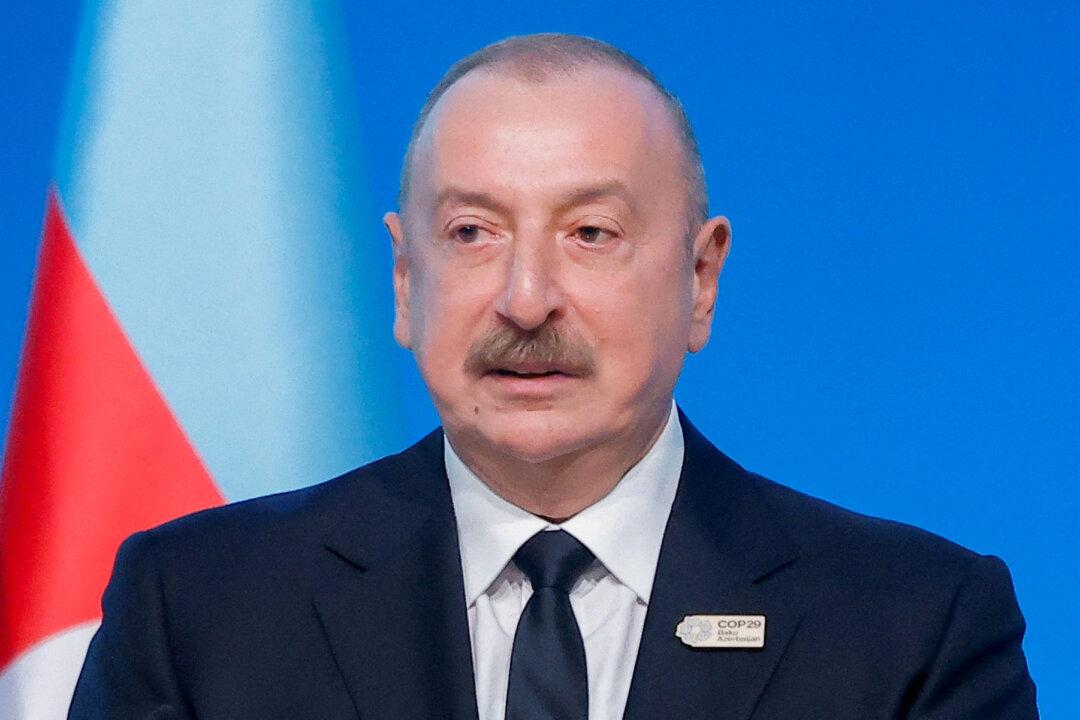The European Commission (EC) this week proposed an 18th sanctions package against Russia targeting the country’s energy, banking, and military-industrial sectors.
With the aim of driving down Russian oil revenue, the proposed sanctions package also calls for a further reduction of the G7’s price cap on Russian oil from $60 to $45 per barrel.
The G7 group of nations comprises the United States, Britain, Canada, France, Germany, Italy, and Japan.
Speaking to reporters on June 10, EC President Ursula von der Leyen said the proposed price-cap reduction would be discussed at an upcoming meeting of G7 leaders in Canada.
“My assumption is that we [reduce the price cap] together as the G7,” von der Leyen said. “We started that as G7, it was successful … and I want to continue this measure as G7.”
Julien Mathonnière, an oil markets economist at the U.S.-based Energy Intelligence Group, said that Brussels is “essentially waging a war of attrition against Russia by adding layer after layer of sanctions, hoping that when critical mass is reached, they will eventually be effective.”
The proposed sanctions package, including the price cap, must be approved by all 27 EU member states before it can be enacted.
If implemented, it will be the second time that Russian oil is subject to Western-imposed price caps.
In late 2022, 10 months after Russia invaded eastern Ukraine, the G7, along with Australia, imposed a $60 price cap on Russian oil.
“The first price cap in 2022 was a U.S.-led policy,” Fereydoun Barkeshli, president of the Vienna Energy Research Group, told The Epoch Times.
“The international oil price was around $80 per barrel back then. This time around, the international price is below $70 per barrel.
“So the EU decided to reduce the cap to $45 in order to ensure that Russia gets proportionally less revenue.”
In early 2023, the G7 imposed a similar price cap on Russian oil products, such as diesel fuel.
Western companies, meanwhile, were prohibited from providing essential services—such as transport, insurance, and financing—for any shipment of Russian oil sold above the reduced price.
The price-cap strategy sought to financially punish Moscow while avoiding disruptions to the global energy market by allowing Russian oil to continue reaching international buyers—albeit at reduced prices.
According to Barkeshli, the price-cap strategy “is designed to ensure that the [global oil] supply remains intact, but at a lower price.”

Alternative Buyers
In early 2023, Moscow banned the sale of Russian oil to any country that adhered to the Western-imposed price cap.It also redirected its oil exports—at discounted prices—to alternative buyers, especially China and India, both of which maintain good relations with Moscow.
As a result, China and India both emerged as the largest buyers of discounted Russian oil that would have otherwise gone to Europe.
Although Russia’s oil revenue was affected by the lower sale prices, its total export volumes remained more or less stable.
Russia has also managed to evade price-cap restrictions by employing a “shadow fleet” of oil tankers that carry out ship-to-ship transfers at sea.
“The price cap has indeed been rather ineffective, thanks to the ‘shadow fleet’ of tankers still helping to ship Russian oil to China, India, Turkey, etc.,” Mathonnière told The Epoch Times.
Nevertheless, he added, last month, “Russia’s oil and gas revenue was 35 percent lower than a year ago and 14 percent lower in January–May 2025 than in the same period last year.
“But it’s difficult to say how much of that is due to sanctions and how much is due to lower oil prices.”
“Russia has not been living under [Western-imposed] restrictions for just a day,” he told reporters on June 11. “We have long operated under such conditions, which we continue to regard as unlawful.”
Russia, he added, “has gained valuable and substantial experience that allows us to minimize the adverse effects of such measures.”
Mathonnière, when asked whether he thought that a further price-cap reduction would significantly impact the global energy market, said: “I don’t think it really will at this point.
“OPEC+ decisions have a much bigger impact. And I think Russia is perfectly aware of that.”
Established in 2016, OPEC+ includes the 12 members of the Organization of Petroleum Exporting Countries (OPEC) along with 10 non-OPEC oil-producing countries, including Russia.
“Russia has already responded to tighter EU sanctions by stepping up efforts to defend its tankers from attempts by NATO countries to restrict navigation of the shadow fleet of vessels in the Baltic Sea,” Mathonnière said.
“According to Finnish officials, Russia has started escorting tankers in the Gulf of Finland. Russia still exports 1.4 million barrels per day from its two Baltic Sea ports of Primorsk and Ust-Luga.
“Almost all barrels shipped from there are currently heading to India, China, and Turkey—the top three consumers of Russian crude.”
Ukrainian President Volodymyr Zelenskyy, meanwhile, has called for reducing the price cap on Russian oil to as little as $30 a barrel.
“Russia’s ability to continue the war is tantamount to its ability to sell oil and bypass financial barriers,” he said in a June 10 video address. “It is necessary to ... do everything so that the price of Russian oil is lower than they can withstand.”
While most G7 members have voiced support for the latest proposed price-cap reduction, it remains unclear whether the United States, which is seeking to normalize relations with Moscow, will join them.
“The previous price cap was imposed by the United States,” Barkeshli said.
“EU-imposed sanctions and price caps will have less impactful consequences.
“Now, all eyes are on the U.S.”
On June 13, oil prices jumped roughly 6 percent—to about $74 per barrel—after Israel unilaterally attacked Iranian military targets and nuclear-energy sites.






